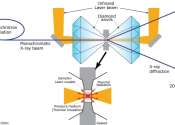Hemp hampered no more with research showing potential as cash crop
After decades of being relegated and regulated, research on industrial hemp as a valuable crop is far behind. That's because the United States banned the use of hemp in the 1930s. The result was all research about this crop ...









